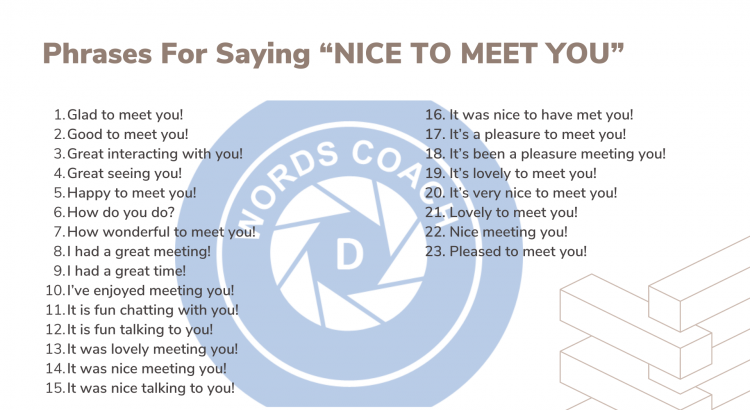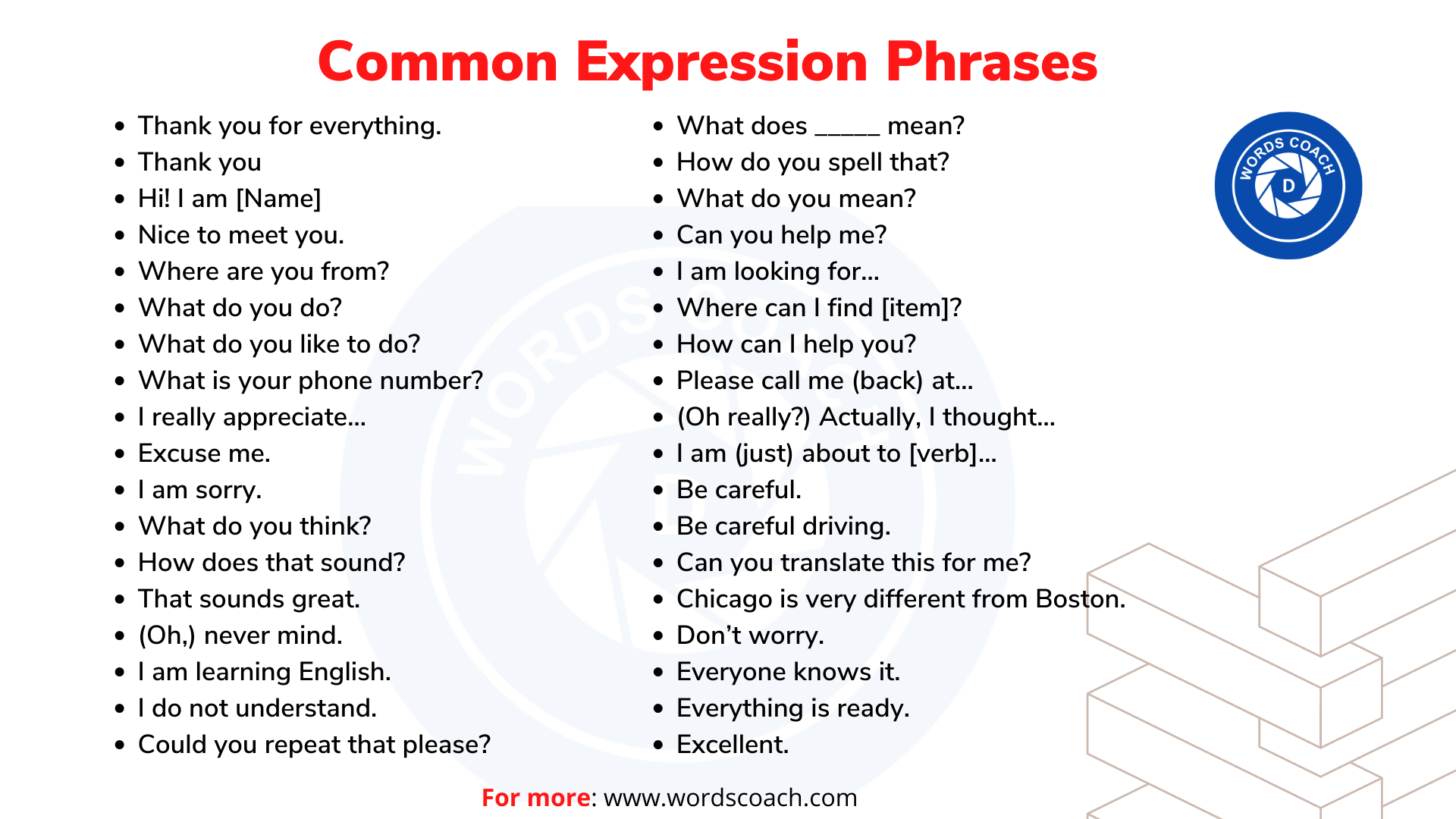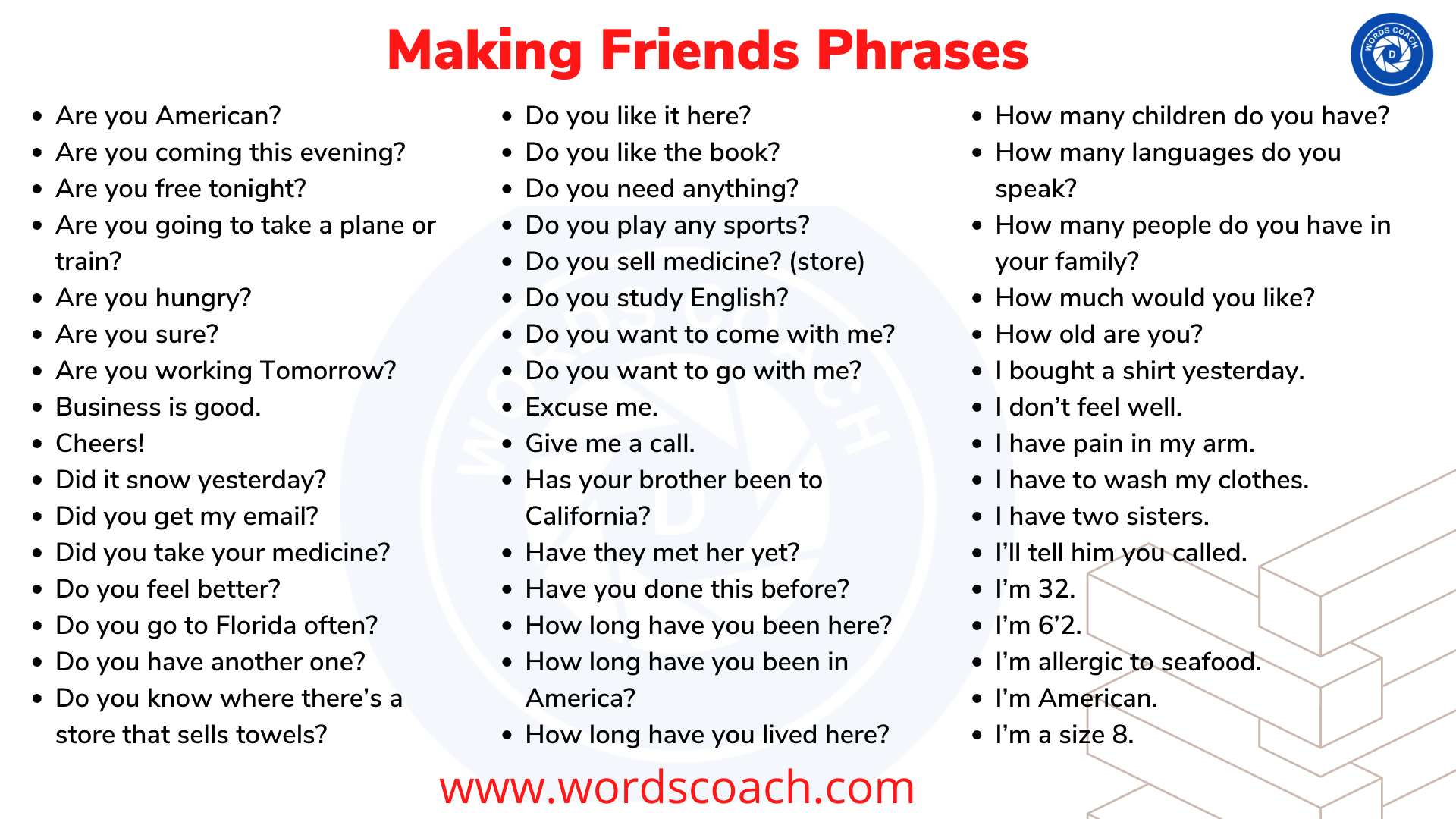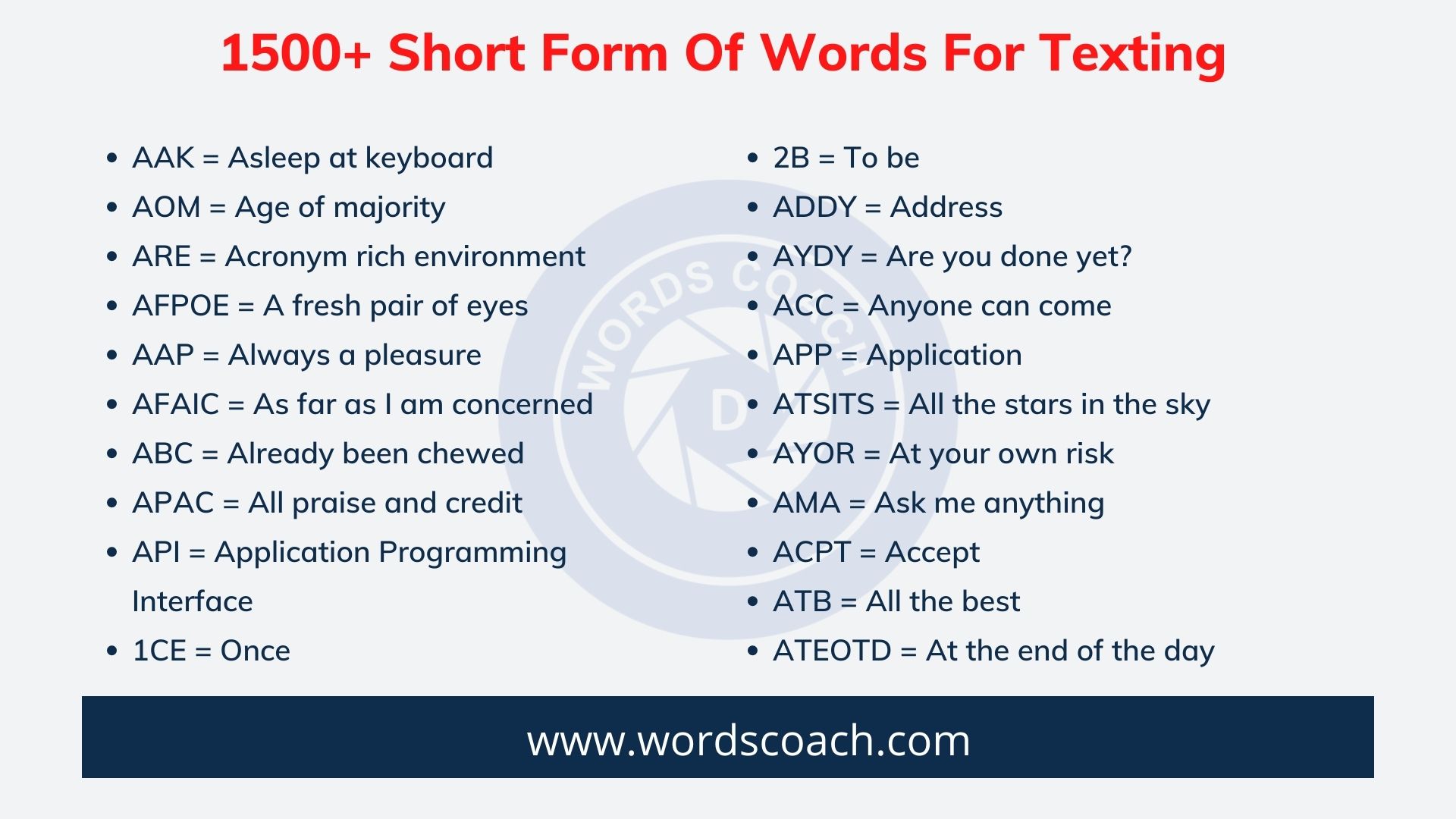Ways to say “NICE TO MEET YOU”
We’ve all been there. Standing at an event, meeting someone new, and the age-old phrase “Nice to meet you” tumbles out. While perfectly serviceable, it can sometimes feel a little bland. But fear not, fellow conversationalists!
List of Ways to say: NICE TO MEET YOU
Here are various ways to say “Nice to meet you,” which can be useful in different contexts and settings:
- Pleased to meet you.
- It’s a pleasure to meet you.
- Glad to meet you.
- Happy to meet you.
- Delighted to meet you.
- Great to meet you.
- Wonderful to meet you.
- Lovely to meet you.
- Nice to make your acquaintance.
- It’s nice to make your acquaintance.
- A pleasure to make your acquaintance.
- It’s good to meet you.
- I’ve been looking forward to meeting you.
- I’m excited to meet you.
- It’s nice meeting you.
- It’s nice seeing you.
- I’m happy to finally meet you.
- It’s wonderful meeting you.
- It’s a pleasure making your acquaintance.
- It’s great getting to know you.
“Nice To Meet You” Synonyms
Learn these “NICE TO MEET YOU” synonyms to enhance your vocabulary and improve your communication skill in English.
Pleased to meet you.
- Meaning: A formal way to express pleasure in meeting someone.
- Use: Often used in formal or business settings.
- Example: “Pleased to meet you, Mr. Smith. I’ve heard a lot about your work.”
It’s a pleasure to meet you.
- Meaning: Indicates that meeting the person is a pleasure.
- Use: Suitable for formal and semi-formal situations.
- Example: “It’s a pleasure to meet you, Dr. Johnson. I’ve been following your research for years.”
Glad to meet you.
- Meaning: Expresses happiness in meeting someone.
- Use: Can be used in both formal and informal contexts.
- Example: “Glad to meet you, Sarah. I’ve heard so much about you from John.”
Happy to meet you.
- Meaning: Conveys happiness at meeting the person.
- Use: Suitable for most social and business settings.
- Example: “Happy to meet you, Michael. I’m looking forward to working with you.”
Delighted to meet you.
- Meaning: Shows a high level of pleasure in meeting someone.
- Use: Often used in formal settings.
- Example: “Delighted to meet you, Ms. Brown. Your reputation precedes you.”
Great to meet you.
- Meaning: Indicates that meeting the person is a positive experience.
- Use: Suitable for casual and professional settings.
- Example: “Great to meet you, Tom. I’ve been looking forward to this introduction.”
Wonderful to meet you.
- Meaning: Suggests that meeting the person is wonderful.
- Use: Can be used in both personal and professional contexts.
- Example: “Wonderful to meet you, Alice. I’ve admired your work for some time.”
Lovely to meet you.
- Meaning: Conveys a warm and friendly greeting.
- Use: Often used in social settings, especially by and with women.
- Example: “Lovely to meet you, Emma. I hope we can work together soon.”
Nice to make your acquaintance.
- Meaning: A formal way to say that it’s nice to meet someone.
- Use: Common in formal settings or first meetings.
- Example: “Nice to make your acquaintance, Mr. Green. I’ve been looking forward to this meeting.”
It’s nice to make your acquaintance.
- Meaning: Another formal way to express pleasure in meeting someone.
- Use: Similar to “Nice to make your acquaintance,” often in formal settings.
- Example: “It’s nice to make your acquaintance, Professor. Your lecture was very enlightening.”
A pleasure to make your acquaintance.
- Meaning: Emphasizes that meeting the person is pleasurable.
- Use: Suitable for formal and semi-formal introductions.
- Example: “A pleasure to make your acquaintance, Mrs. White. I’ve heard many great things about you.”
It’s good to meet you.
- Meaning: A simple way to express that meeting someone is a positive experience.
- Use: Can be used in both casual and professional contexts.
- Example: “It’s good to meet you, Mark. I’ve been looking forward to our meeting.”
I’ve been looking forward to meeting you.
- Meaning: Shows anticipation and eagerness to meet the person.
- Use: Suitable for business and professional introductions.
- Example: “I’ve been looking forward to meeting you, Ms. Clark. I’m excited to discuss our collaboration.”
I’m excited to meet you.
- Meaning: Conveys enthusiasm about meeting the person.
- Use: Suitable for professional and semi-formal settings.
- Example: “I’m excited to meet you, David. Your insights will be valuable to our project.”
It’s nice meeting you.
- Meaning: Indicates that meeting the person was a positive experience.
- Use: Often used at the end of a first meeting.
- Example: “It’s nice meeting you, Linda. I hope we can stay in touch.”
It’s nice seeing you.
- Meaning: Suggests that it’s nice to see someone again or for the first time.
- Use: Can be used for both first meetings and subsequent encounters.
- Example: “It’s nice seeing you, Alex. Let’s catch up soon.”
I’m happy to finally meet you.
- Meaning: Expresses happiness about meeting someone after anticipating the meeting.
- Use: Suitable for both personal and professional settings.
- Example: “I’m happy to finally meet you, Jane. I’ve heard so much about you.”
It’s wonderful meeting you.
- Meaning: Conveys that meeting the person is a wonderful experience.
- Use: Suitable for personal and semi-formal introductions.
- Example: “It’s wonderful meeting you, Peter. Your reputation precedes you.”
It’s a pleasure making your acquaintance.
- Meaning: Formal way to express pleasure in meeting someone.
- Use: Often used in formal business or social settings.
- Example: “It’s a pleasure making your acquaintance, Mr. Brown. I’ve been looking forward to this opportunity.”
It’s great getting to know you.
- Meaning: Suggests that getting to know the person is a positive experience.
- Use: Suitable for informal and semi-formal settings.
- Example: “It’s great getting to know you, Sophie. I’m sure we’ll work well together.”









